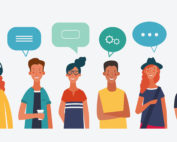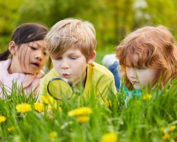What is Learnership?
Learnership combines the words and meanings of the words “learner” and “ownership.” Together, they embody the elevation of learning to learner ownership. Someone who has true learnership is one who self-directs, self-evaluates, self-reflects, and self-controls their own learning. We are posting new articles every week so make it your routine to check-in frequently. Or, subscribe to The Learnership Review and receive monthly emails so you never miss a thing.
Differentiated Delegation: How to Ensure Individual Success for Each and Every Teacher
In this article you will learn…
- Why differentiated delegation is critical to the success of school-wide initiatives.
- How to determine a differentiated approach to delegation for each and every teacher.
- The guidelines for offering differentiate support for your teachers.
How to Master the Art of Dialogue
In this article you will learn:
- Someone who has mastered the art of dialogue is able to share ideas, listen and hear, and propel a conversation by asking clarifying questions, by respectfully challenging ideas, by building upon each other’s words, and by assuming that we will all learn something new.
- The state standards articulate skills that can be taught and mastered from kindergarten to career and college ready.
- Utilizing Structured Conversations as an instructional strategy is an effective way to help your students practice the skills they need to master the art of dialogue.
To Take Care of Our Students, We Need to Take Care of Ourselves
In this article you will learn…
- As teachers we serve others before ourselves, but we can’t be truly effective if we don’t first own what we need for ourselves.
- It is critical that we take time to self-reflect and self-evaluate our needs.
- Reflection and evaluation are key parts to elevating learnership.
Don’t Reteach If You Don’t Know Why!
In this article you will learn…
- Reteaching cannot be effective and efficient if the teacher does not clearly understand what worked (and didn’t) during classroom instruction.
- There should be more to data protocols than just identifying what kids didn’t learn and then reteach them.
- To identify WHAT students have learned (or not) and WHY they have learned (or not, in order to determine HOW to reteach them effectively.
Act Like a Child: How to Promote Curiosity
In this article you will learn…
- That to support all students and make learning equitable, the academic environment needs to recognize, teach, and support behaviors that promote curiosity.
- The classroom and teacher must make specific behaviors known to all students, acknowledge when students are exhibiting these behaviors, and nurture these behaviors in order to advance learning.
- The strategies for promoting curiosity that can be used successfully at any grade level.
The Best Way to Motivate Students While Distance Learning
In this article, you will learn that...
- Many common strategies for motivating students can backfire.
- Motivation is a skill that can be taught.
- The best way to increase student motivation is by helping students develop an ownership mindset.
What are people saying about Elevated Achievement Group?
Relevant and valuable information that we can put into practice.
Can you imagine building an environment full of motivated, engaged, and eager students who own their learning?
We can.









